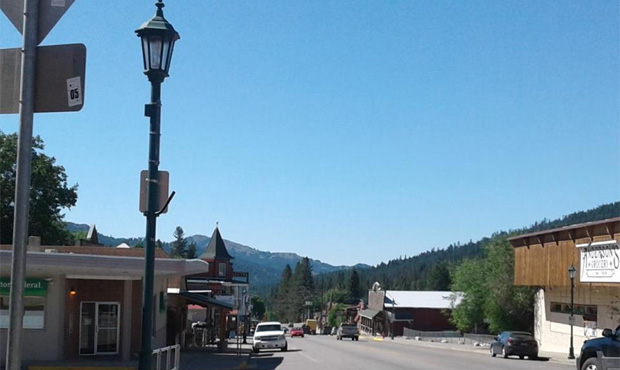McKenna: Idea of sanctuary cities for guns, immigration is ‘fiction’
Nov 27, 2018, 5:37 PM

The city of Republic, WA in Ferry County. (Republic, Washington Facebook)
(Republic, Washington Facebook)
The small town of Republic, Washington recently declared itself a sanctuary city from the recently-passed I-1639 gun control initiative. But is that something they can legally do, and can the state do anything to enforce this new law?
RELATED: Students speaks out against I-1639 ‘sanctuary city’
Shortly after Washington voters passed an initiative that represents the most expansive gun control regulations of any state, Republic Police Chief Loren Culp declared his town a sanctuary city from the law.
“The City of Republic will not enforce any of the rules or regulations that violate citizens rights to include the Second Amendment and the Article 1 Section 24 of the state Constitution which states that ‘the right of the individual citizen to bear arms in defense of himself or the state shall not be impaired’ and this definitely impairs the constitutional rights of citizens,” Culp said.
There’s been a good deal of debate surrounding Culp’s decision, but the most prominent question is simple: Can Republic legally do this?
“The idea of declaring any city a sanctuary city from anything that involves law is really kind of fiction,” former Washington state Attorney General Rob McKenna told MyNorthwest.
Any city like Republic with gun laws, or Seattle with illegal immigration, can say they’re a sanctuary city. But in terms of legal status, there’s no real protection to be had.
“It doesn’t really mean anything, except that they’ve decided they’re not going to assist federal law enforcement in the case of immigration, or they’re not going to enforce new rules for gun owners in the case of the recently passed initiative,” said McKenna.
Essentially, “it’s a phrase intended to convey the idea that you’re safe here from the law being enforced against you, but it doesn’t really have any legal meaning.”
Seattle’s own status as a sanctuary city for illegal immigrants established a state precedent for any other city or town that doesn’t feel as though a law should apply to it. And while that goes against laws established at a higher level of government, there’s also little that can be done about it.
“There’s no practical way you can force a local police department to enforce the law,” said McKenna. “The police chief is accountable to the city council, the city council has approved his decision in Republic, and the city council is accountable to the voters. So if enough people got upset about the police not enforcing a certain law, the remedy would be to replace the city council, who would then hire a new police chief.”
Because of the groundswell of local support in Republic, though, there’s not a whole lot the state government can do when a city agrees at every level not to enforce a law.
“We’ve distributed power to enforce laws that are designed to protect our safety and health to local governments — ultimately it’s up to the voters who live under that local government to decide whether or not they like it,” McKenna said.
That being so, McKenna doesn’t expect the state government to intervene in Republic any time soon. “If they were to somehow try and punish the city, all that would do is strengthen the position of the people who made the decision — no one likes to be bullied or bossed around,” he explained.
It’s not hard to see a trend developing in Washington state. This could of course have some wondering if a domino effect of cities refusing to enforce state laws is in the cards. But even with the proliferation of sanctuary cities in Washington, McKenna also doesn’t see this as something to be concerned about long term.
“The fact is these cases are far and few between, and on average, voters want the laws to be enforced,” he said.
RELATED: Republic police chief proposes ‘2nd Amendment Sanctuary City’













